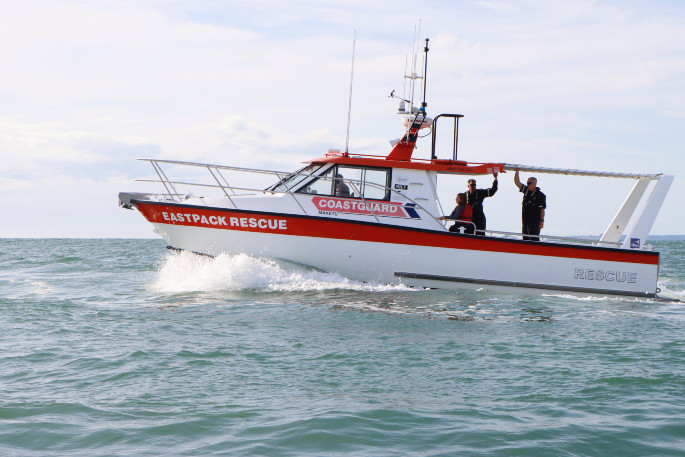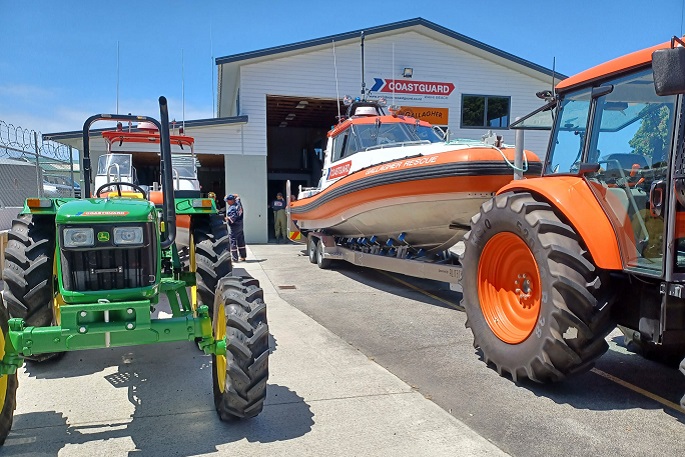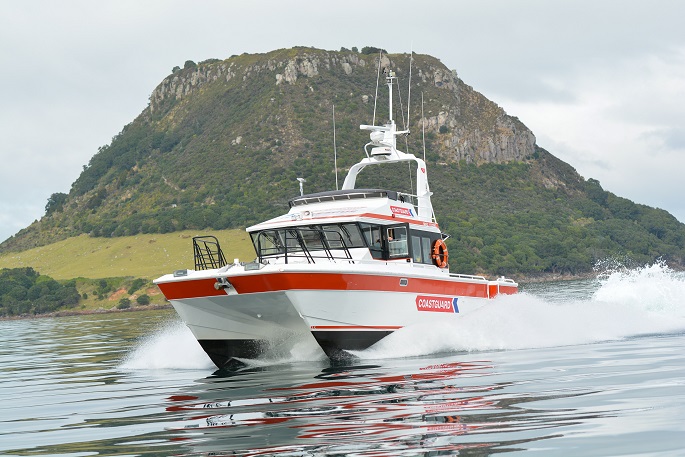With the Bay of Plenty becoming a more popular destination to live and visit, Coastguard units are aware of the increased costs and time requirements of their volunteers.
They’re focused on ensuring volunteers do not burn out and encourage anyone who plans to head out on the water this summer to show support by giving a donation.
Coastguard New Zealand | Tautiaki Moana is New Zealand’s primary maritime search and rescue provider. The Eastern Region comprises of 14 volunteer units from Whitianga to Hawke’s Bay, including Lake Taupō and Rotorua Lakes.
Local units, Waihi Beach - Bowentown, Tauranga and Maketu provide 24/7 rescue support and education to the community around water, bar awareness, and boat safety.
Maketu oversees three shallow, dangerous bars; Waihi Beach received over 5,200 radio calls in the last year, and Tauranga remains one of the busiest Coastguard units in the country, receiving nearly 25,000 radio calls, assisting over 330 people and performing over 125 search and rescue operations.
 Maketu Coastguard. Photo: Supplied.
Maketu Coastguard. Photo: Supplied.
These units are operational mostly due to the commitment of their volunteers.
Each Coastguard unit has varying volunteer requirements dependent on the number of vessels they have, if they have a radio unit onsite and how busy they are year-round.
Currently, all crew and radio operators across Waihi Beach, Tauranga and Maketu are volunteers.
Tauranga Unit operations manager Dane Robertson says that there is a perception that Coastguard New Zealand is fully paid, can police and ticket people, or is part of customs or fisheries.
“We’re simply volunteers that will get out there, help someone and bring them back safely. We don’t judge, and we don’t growl. Our mission is to save lives at sea,” says Dane.
“All of our crew and radio operators are volunteers, so if someone calls for help, the people helping them have left their jobs or family to come and help that vessel and the people onboard get back to shore safely. They work hard, sometimes for hours, before heading back to work or their family afterwards and continuing their day.”
 Waihi Coastguard. Photo: Supplied.
Waihi Coastguard. Photo: Supplied.
According to research from the most recent Maritime NZ Recreational Boating Monitor Quarterly Report, 19 per cent of recreational boaters identify the Bay of Plenty as their main water-use location. This makes the workload of these three Coastguard units high, especially over the summer.
Callouts are increasing yearly, with the majority being to tow a vessel back to shore due to engines not starting, electrical issues or fuel shortages.
Luckily, serious search and rescue jobs make up less than 10 per cent of volunteers' time on the water. However, if Coastguard wasn’t around to help people, then minor situations could become serious very quickly.
“Many people realise when they breakdown that even if they can see the shore, they’re alone and isolated. It can become scary very fast, and seeing the relief on people’s faces when we turn up makes it all worth it,” says Dane.
TECT recently funded $65,000 to the three local units, making a huge difference for these crews leading into summer.
 Tauranga Coastguard. Photo: Supplied.
Tauranga Coastguard. Photo: Supplied.
TECT Trustee Mark Arundel says the three local units provide an invaluable service to our community.
“As a coastal region, recreational water use plays a significant role in many of our lives. We are extremely lucky to have the volunteer Coastguard crews of Waihi Beach, Tauranga and Maketu available to us, keeping us safe," says Mark.
“TECT are proud to support these units to ensure they can continue aiding water users, regardless of experience. Assisting one person has a much broader effect for their wider family and community.
“Once you’ve had the unfortunate experience of needing Coastguard, you appreciate their services and the people volunteering much more.”
Many Coastguard volunteers aren’t familiar with boats or water safety before signing on as volunteers. They sign up because they want to help their community and make a difference, taking part in regular training to ensure they’re highly-skilled for various scenarios and procedures.
People can apply directly via the website https://volunteers.coastguard.nz/ or drop into their local unit to have a chat directly with the team and unit managers.



0 comments
Leave a Comment
You must be logged in to make a comment.